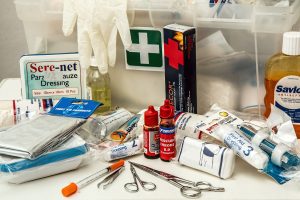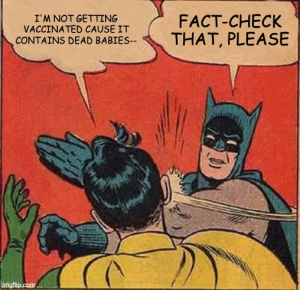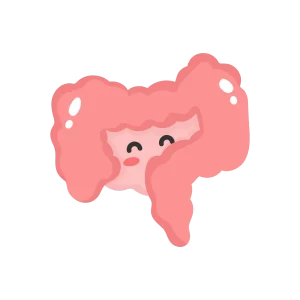Travelling soon? Here’s what you need to know!

When our PM announced that our international borders are open, all I can think of is this scene from the movie Frozen.

It’s been two years since our passport got a country stamp. Are you excited as I am to embark on a journey to a foreign land, indulging in exotic food, exploring the beauty of Earth while embracing new cultures?
Hold up, before you start finalizing your travel itinerary and packing your luggage, there is something you should and must know to prepare before your trip; Travel and Health.
Often being overlooked, this is an important aspect that you should plan for and get sorted especially if you have underlying medical conditions or you’re traveling for an extended period (2 weeks and more). Here’s a quick health travel checklist for your reference aside from your packing checklist;
- Pre-Travel Health Consultation
- Vaccines and Prophylactic Medications
- Personal Medications & Your Travel Health Kit
- Travel Insurance & Emergency
- Advice during Traveling
- Post Traveling

1. Pre-Travel Health Consultation
Before you travel, you should visit your doctor at least one month before your travel. This is to help you to gain some professional medical advice regarding destination-specific vaccines and medicines together with your possible risk and required precautions. Do not forget to share the following information with your doctor as well;
- Your medical conditions such as pregnancy, allergies, or chronic health problems.
- Destinations on your itinerary
- Type of accommodations (hotels, hostels, short term rentals)
- Type of travel (cruise, business, adventure travel)
- Timing and length of your trip
- Planned activities (e.g., voluntary work, disaster relief work, extreme sports, traveling to high altitudes, exposure to open water, contact with animals)
2. Vaccines and Prophylactic Medications

During your pre-travel consultation, it is good to discuss about the vaccines and prophylactic medicines that you need to take before you travel to certain countries. Of course, let your doctor know about your latest vaccine status as this will decide whether you need a booster shot or the entire vaccine regime. Ensure all your routine vaccines are up-to-date before your trip. Routine vaccines include (but are not limited to) influenza, measles, mumps, and rubella (MMR), tetanus (Td or Tdap), varicella, pneumococcus, and polio.
Some preventable travel-related diseases can be prevented by vaccination or prophylactic medicines. It is best to refer to your destination’s health website for their specific recommendation. Alternatively, I found the CDC website useful as we can select our destination country and their respective travel health recommendations will be listed. The vaccine recommendation depends on the areas/countries that you’re traveling to (the prevalence of the disease, the country’s requirement) and the duration of your stay. For example, Meningococcal Vaccine is required for travellers to Saudi Arabia for the Hajj.
Here are some of the preventable diseases and their preventable measures (Source);
- Hepatitis A – Vaccination
- Hepatitis B – Vaccination
- Typhoid – Vaccination
- Rabies – Vaccination
- Yellow fever – Vaccination
- Japanese encephalitis – Vaccination
- Cholera – Vaccination
- Meningococcal – Vaccination
- Malaria – Prophylactic medications
Of course, not forgetting your COVID-19 vaccination during this COVID-19 pandemic. It is best to check whether your destination country accepts your COVID-19 vaccination before your travel and prepare your vaccination certificates beforehand for smoother travel.

3. Personal Medications & Your Travel Health Kit
If you’re on medications on a regular basis, do prepare to bring your medication supply along according to your duration of stay with up to extra 2 weeks supply in case your trip got extended unexpectedly. A valid doctor’s prescription may also be required in some countries to bring your medications. Hence, it is best to check the country’s regulations on bringing personal medications especially if your medicines do contain psychotropic substances or other controlled substances. Another thing to keep in mind is the special storage conditions of your medicines, for example, insulins or biologics requiring a cold box. Medical devices like spectacles, contact lenses, medical alert bracelets, insulin pens, and inhalers shall not be forgotten as well for those who are using these long-term.
Packing some over-the-counter medicines can be a good idea, especially during emergencies and situations when the quality of the item bought oversea cannot be guaranteed. Some recommended OTC medicines and necessary supplies to prepare and pack include (source);
- Diarrhoea medicine
- Antacid
- Antihistamine
- Motion sickness medicine
- Cough drops, cough suppressant, or expectorant
- Decongestant
- Pain and fever medicine (paracetamol, ibuprofen)
- Mild laxative
- Mild sedative or sleep aid
- Hand sanitizer and antibacterial hand wipes
- Insect repellent
- Sunscreen with UVA and UVB protection
- Oral rehydration salts
- Antiseptic wound cleaner
- Antibacterial cream
- Insect bite anti-itch cream
- Bandages and plasters

4. Travel Insurance & Emergency
Do check if current health insurance covers your medical care abroad. Travelers are expected to cover the hospitalization and other medical costs by themselves at most destinations. It is good to consider buying additional insurance that covers healthcare and emergency evacuation when you’re overseas. The Malay proverb, “Sediakan payung sebelum hujan” which literally means to prepare an umbrella before it rains fits right here. Always have a plan B in case of emergencies; leave copies of important documents at home (e.g., credit cards, passports) and have a list of emergency contacts ready at all times (e.g., local police station, nearest hospital and clinic, embassy).

5. Advice during Travelling
After all the above steps are done, you’re good to go explore your new world! Not going to sound like a broken record, but here are some of the very few tips that you should keep in mind while you’re enjoying your trip;
i. Get some leg stretch if you’re on a long-haul flight to prevent blood clots
ii. Only consume clean, cooked food and drinks (you wouldn’t want Traveller Diarrhoea to ruin your vacation)
iii. Bug bites are annoying so protect yourself with repellents and protective clothes
iv. Sunburn really hurts so please apply and reapply your sunscreen
v. If you just did scuba dive and said hello to the underwater world, please wait for 12 to 48 hours before flying to prevent decompression sickness.

6. Post Travelling
You’re back and had the blast of your life. As you unpack and resume your usual activities, do watch out for some symptoms like fever, rash, and diarrhea after your return. You should consult your doctor if you do experience these symptoms and inform them of your detailed travel history and activities to assist your management and treatment. Otherwise, hope that your trip was a blissful experience with lots of wonderful stories to share.
All this travel writing is making me want to travel again. Got to stop writing and start packing for my next travel! Stay safe and happy traveling!
Disclaimer: All the content in this article is for informational purposes for the general audience only. It is not intended to be a substitute for professional medical advice and should not be relied on as health or personal advice. Always seek the guidance of your doctor, pharmacist or other qualified health professional with any questions you may have regarding your health or a medical condition.
The opinions expressed in the article are the writer’s own and do not reflect the view of MPS YPC.













